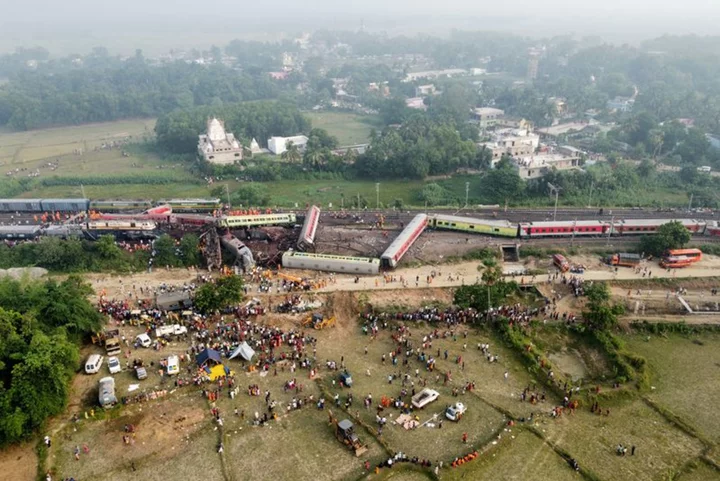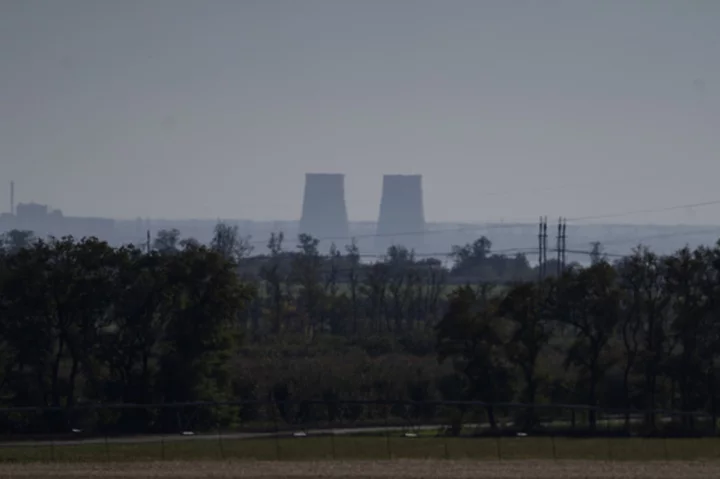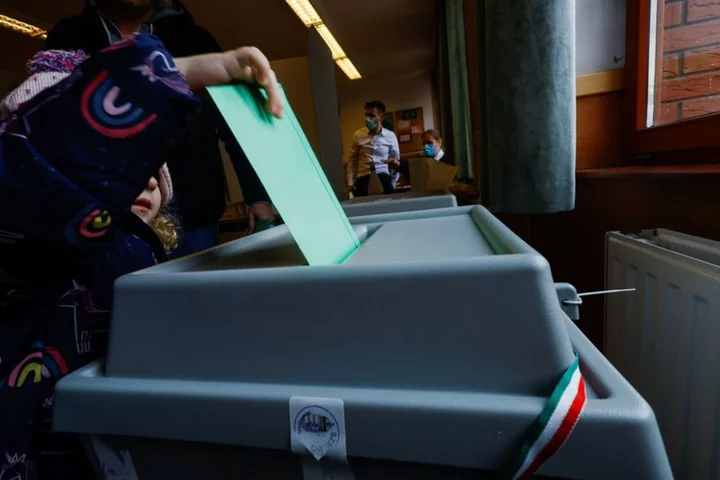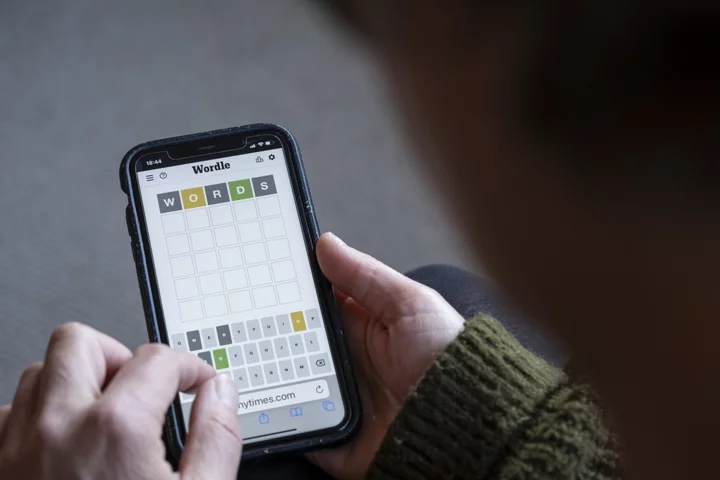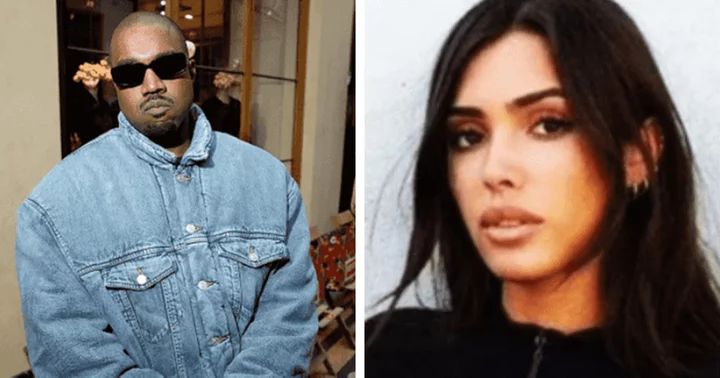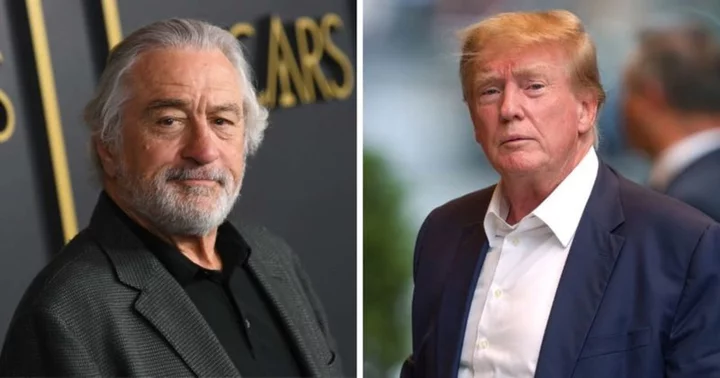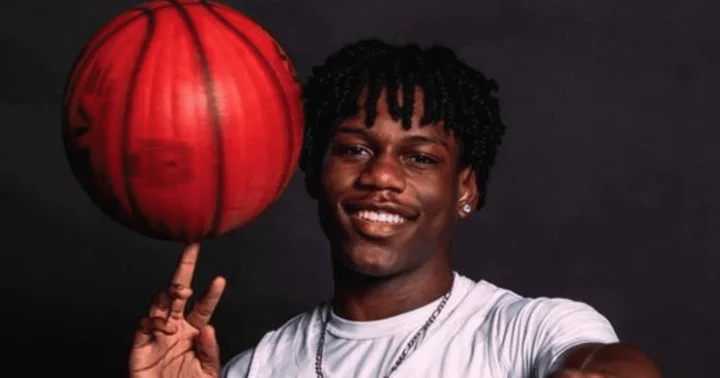By Jatindra Dash and Abinaya V
BHUBANESWAR, India (Reuters) -At least 261 people have died in India's worst rail accident in over two decades, officials said on Saturday, after a passenger train went off the tracks and hit another one in the east of the country.
One train in Friday's accident also hit a freight train parked nearby in the district of Balasore in Odisha state, leaving a tangled mess of smashed rail cars and injuring 650.
The death toll has reached 261, said K. S. Anand, chief public relations officer of South Eastern Railway. The AFP news agency had earlier quoted an official as saying 288 people had died.
Surviving passenger Anubha Das said he would never forget the scene. "Families crushed away, limbless bodies and a bloodbath on the tracks," he said.
Video footage showed derailed train coaches and damaged tracks, with rescue teams searching the mangled carriages to pull the survivors out and rush them to hospital.
People were seen searching for their relatives at the site and nearby hospitals.
Prime Minister Narendra Modi was flying to the scene, ANI news agency reported, citing sources.
"We have seen a large number of deaths," a witness said.
Another witness involved in rescue operations said the screams and wails of the injured and the relatives of those killed were disturbing. "It was horrific and heart-wrenching," he said.
Families of the dead will receive 1 million rupees ($12,000), while the seriously injured will get 200,000 rupees, with 50,000 rupees for minor injuries, Railway Minister Ashwini Vaishnaw said. Some state governments have also announced compensation.
"It's a big, tragic accident," Vaishnaw told reporters after inspecting the accident spot. "Our complete focus is on the rescue and relief operation, and we are trying to ensure that those injured get the best possible treatment."
Odisha state Chief Secretary Pradeep Jena said on Twitter that more than 200 ambulances had been called to the scene and 100 doctors had been mobilised to join 80 already there.
Early on Saturday morning, Reuters video footage showed police officials moving bodies covered in white cloths off the railway tracks.
"I was asleep," an unidentified male survivor told NDTV news. "I was woken up by the noise of the train derailing. Suddenly I saw 10-15 people dead. I managed to come out of the coach, and then I saw a lot of dismembered bodies."
Video footage from Friday showed rescuers climbing up one of the mangled trains to find survivors, while passengers called for help and sobbed next to the wreckage.
The collision occurred around 7 p.m. (1330 GMT) on Friday when the Howrah Superfast Express from Bengaluru to Howrah in West Bengal collided with the Coromandel Express from Kolkata to Chennai.
An extensive search-and-rescue operation has been mounted, involving hundreds of fire department personnel and police officers as well as sniffer dogs. National Disaster Response Force teams were at the site.
On Friday, hundreds of young people lined up outside a government hospital in Odisha's Soro to donate blood.
According to Indian Railways, its network facilitates the transportation of over 13 million people every day. But the state-run monopoly has had a patchy safety record because of ageing infrastructure.
The state has declared Saturday a day of state mourning as a mark of respect to the victims.
India's deadliest railway accident occurred in 1981 when a train plunged off a bridge into a river in Bihar state, killing an estimated 800 people.
($1 = 82.4000 Indian rupees)
(Reporting by Jatindra Dash in Bhubaneswar and Abinaya Vijayaraghavan in Bengaluru; Additional reporting by Akriti Sharma, Subrata Nag Choudhury, Mayank Bhardwaj and Sakshi Dayal; Editing by Edwina Gibbs and William Mallard)

